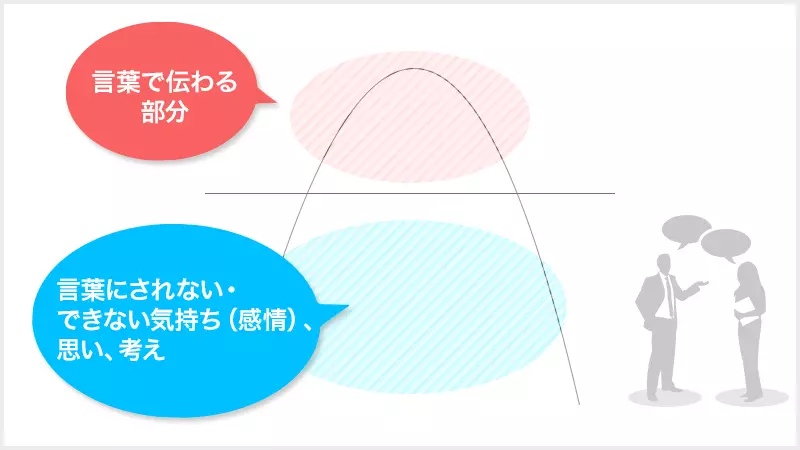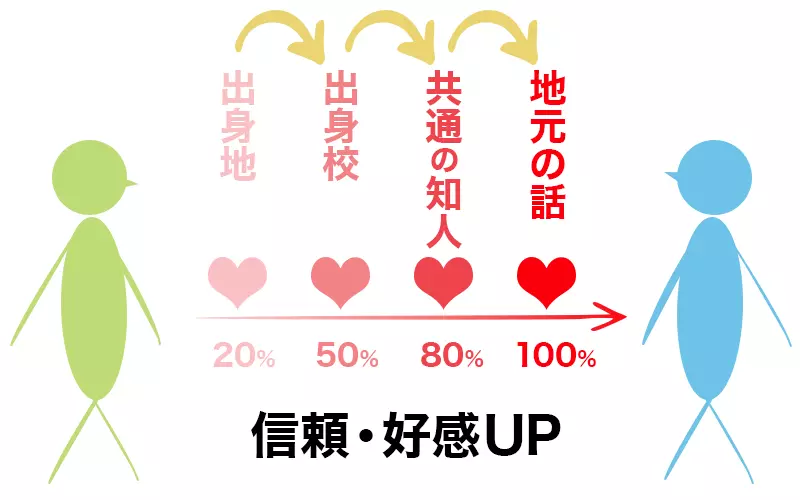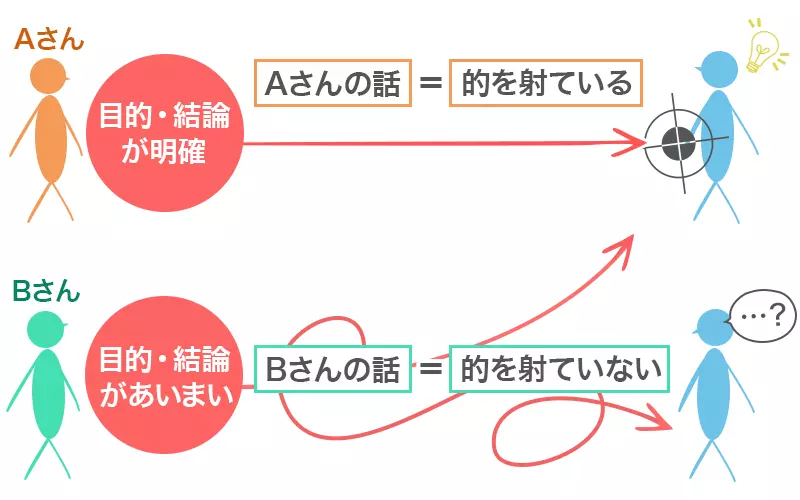Maybe many people think that communication skills are only necessary for some specific occupations and jobs such as business, communications, sales, … but in IT, it is not very important, right?
However, I myself think that every day we communicate with friends, with relatives, with colleagues, with the lady selling vegetables in the market, … then that is also the time when communication skills will decide the different results.
So lately I also want to learn about communication skills, at least improve my current ability and happen to read a pretty good and interesting article. In this article I will summarize the main ideas of that article, and if you want to read the full version, I have to link here .
Let’s go !!!
Preface
Communication is the concern of almost everyone, not just anyone’s problem. You may have seen someone who is good at communicating and thinks “I want to be like that” to solve the following problems:
- Wanting to break up the tense atmosphere made the first conversation with others unable to continue
- No matter how many times they say it, subordinates still make mistakes
- I want to use words skillfully, I want the conversation to last more happily
- I want to hear and fully understand everything that the senior and senior said
- I don’t know what to say to a business partner
- I want to improve relationships and conversations with loved ones, family members.
Many people have realized that communication has an important influence in everyday work, in relationships, and at the same time in life in general. Anthony Robins, the world’s No. 1 coach, told his famous clients, such as former US President Clinton, Princess Diana, … that:
Quality of communication affects life.
And around us today, about 80% of companies consider communication skills an important item when hiring people. At this point, everyone should also see the importance of communication skills, right?
So how to improve communication here?
Note that communication skills cannot be measured with numbers, but all of them are judged from the subjects you communicate with.
- I’m glad I spoke with this person
- This conversation is easy to understand
- Want to continue talking with this person
If the other person has such feelings, it can be said that this person is very good at communication.
7 characteristics of people who are good at communication
1. Has a strong interest, interest in the other person
The most basic element of a person who is good at communication is the level of interest and concern for the other person (person). Communication is a way of understanding each other’s thoughts and perceptions of things, feelings, experiences and information. Whether you want to be interested in the other person’s information will also affect the relationship of trust differently, as shown in the image below:

- B: Has a keen interest in information about A
- C: Has interest, little interest in the information of A
- ==> For A: B is a person who knows his information better, so he feels B will be safer.
People tend to have sympathy and trust toward someone who understands and empathizes with themselves.
So, whether at work or in private, taking care of the other person is indispensable if you want to improve your communication skills to build trusting relationships with others.
To get an excuse for the things you should care about when communicating, you can refer to the following sections:
- Pay attention to what you learn from the other person
- Pay attention to what you can do for the other person
- Find the differences between you and your partner
- Find something in common between you and your partner
By communicating with the other person and keeping an eye on these things, you can create the first opportunities to expand and deepen information, thereby increasing interest in them.
2. Can read the opponent’s mind

In everyday words, if we compare our emotions to an iceberg, the information that people can see is only a small part of the sea surface of that iceberg. And people with high communication skills are very good at capturing intentions and emotions that are really hidden underneath that ice.
Let’s try to watch a conversation of someone who does not capture the opponent’s intentions:
- A: A few days ago, I made a mistake at work …
- B: Really.
- A: Uhm …
In this manner, if simply responding to the opponent’s opening conversation, the conversation would quickly end. And then A will think like this: “This person doesn’t seem interested in his story, talking now might be annoying, right? What a difficult person to talk to.”
Here, the opponent’s purpose is not to report to you, but to convey, want you to understand the other person’s story. So it is extremely important to understand the hidden meanings and feelings of the other party.
And below is the conversation of a person who captures the opponent’s intentions:
- A: A few days ago, I made a mistake at work …
- B: Damn it? Not by doing too quickly, right? What’s going on?
- A: Honestly, I’m all sweaty …
- (continue)
People tend to be very confident in people who understand their difficult stories and feelings.
Therefore, a person who is good at communication is someone who not only hears the opponent’s language but also notices non-verbal expressions such as facial expressions, tone, … in addition, stands on the opponent’s stance to feel receive that story.
3. Create a sense of unity with the other person
People with good communication skills are often better than others in speaking openly and gaining trust from the other side. Take a look around you, I think there will be someone who can immediately get acquainted with others from the first meeting there.
It can be said that creating a sense of unity with the other person will help those who are good at communicating to immediately open up to the other party and make the other person open up to themselves.
In Neuro Linguistic Programming (NLP) psychology, to build trustworthy relationships, there are two skills below that are commonly used:
- Mirroring
- Pacing
Mirroring – is the adjustment of facial expressions, expressions, actions, gestures, … to suit the opponent.
For example:
- Both put their hands under the table
- The opponent starts to put their hands on the table
- I myself will also slowly move my hands on the table

Pacing – means adjusting speed, tone of voice, and tone of speech to suit the opponent.

The reason why adapting to a partner works for a deep relationship of trust is because people often feel affectionate, close, and reassuring to people who look like them (yes similarities).
For example: Did you see that, at the first talk, if you know that both of them are from the same country, it will be more friendly and easier to talk, right?
In addition, if the same high school, the same hometown, the story about the homeland will be exchanged very excitedly, right?
Or, if you are the same fan of an artist, the conversation will gradually get interesting and last forever, ..

In short, groups of people with trustworthy relationships are built by many in common between them. So, with the adjustment of movements, the tone that is close to the opponent will have the effect of deliberately establishing common points, thereby gradually building a trusting relationship between the two.
This is a simple and effective skill, but if you really do not want to build a reliable, sustainable relationship, it is likely that the other person will see your true intentions. So, please use this skill with sincerity.
4. Understand the core of listening
Like the saying “good talkers are good listeners”, people who are good at communication will often focus on the story, thereby exploiting and expanding the story based on the main points heard.
In counseling, coaching and psychology, hearing someone else’s story is called “listening.” In order to understand the customer clearly as well as let the other person say the real intention, listening is an extremely important skill in communication.
In other words, listening is also a fundamental attitude to interact with customers and other people.
On the other hand, people who often have trouble “can’t continue the conversation”, “don’t know what to say next”, … often think “communication” = “speaking”.
Communication is understanding the other person’s thoughts, and that is also the purpose of conversations. People who just keep talking about their stories and don’t care about the other person’s story will also fall into a situation where others won’t listen to their own stories, so please pay attention.
In order to become better in our communication skills, first of all, it is important to listen carefully. And to listen to the other party and continue the conversation, there are 3 main points to pay attention to:
- Use nods and words to express your reaction to the other’s story (um, ah, …) when communicating
- Find things you have in common with your partner and use them to liven up conversation
- Find out and dig deep into the things the other person is interested in
However, everything is easier than you think if you listen to the other person sincerely. Then you will find that the conversation will take place in the most natural and comfortable way.
5. Speak in a way that is easy to understand
One great thing that people who are good at communicating have in common is that they speak easily.
The secret to a straightforward conversation is to clarify the purpose and conclusion of the conversation by thinking about these two questions as you talk to someone else:
- What problem do you want to convey?
- What do you want to get out of this conversation?

In the first picture, when clarifying the purpose, the conclusion that you want, what A communicates will follow the purpose, that conclusion without a circle, causing confusion like how B communicates (unclear destination, conclusion)
If in a conversation you have been asked, “Close, what are you talking about?” then perhaps this should be improved again. In the culture of Business communication, conclusions are often given first, the purpose is to let everyone first know what the purpose of this conversation is, what is the problem to be talked about.
As such, this has the advantage that even an extremely busy person will quickly grasp the situation and make a decision. In particular, in Business communication, it is important to note the following 2 points:
- Clarify the purpose, the conclusion and convey to the other person first
- Exchange with an objective perspective first, then give the individual’s subjective opinion
For example:
- When making a report, first talk about what you are going to report. After giving out all the information and data, give your personal opinion.
- I want to report the problem …..
- The problem is …. (5W1H applies)
- My opinion is…..
- If it is organizing a meeting, first talk about the purpose and objectives of the meeting first.
- Today’s meeting addressed the issue …
- The ultimate goal is to determine the number of upcoming goals and who is in charge of them.
(continue…)
